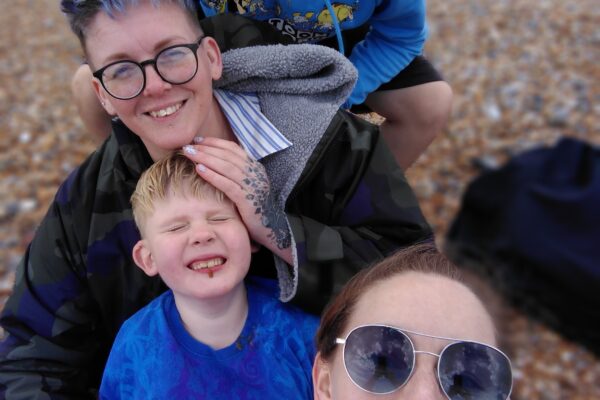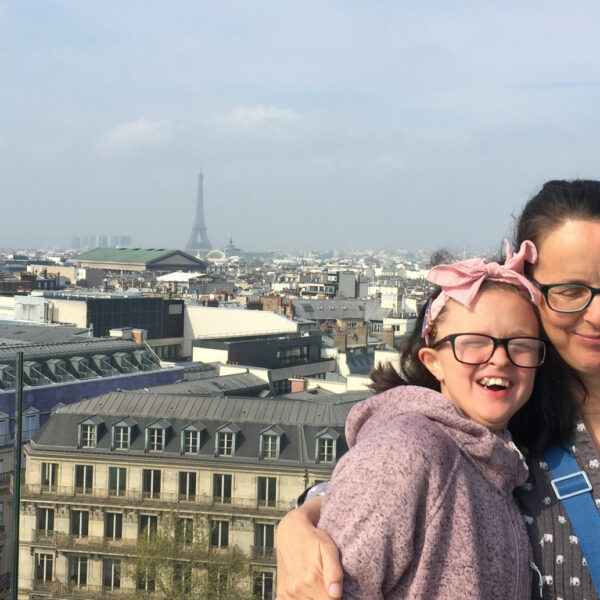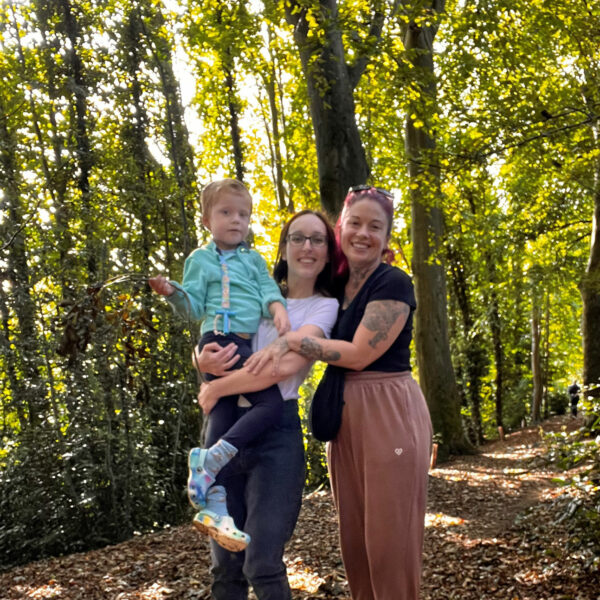Fetal Alcohol Spectrum Disorder
Information and signposting for parents of children that have or are suspected of having Fetal Alcohol Spectrum Disorder.
What is Fetal Alcohol Spectrum Disorder (FASD)?
Fetal Alcohol Spectrum Disorder results from drinking alcohol in pregnancy which affects the developing brain and body of the child. FASD is a classed as a neurodevelopmental condition with lifelong cognitive, emotional and behavioural challenges. FASD is a spectrum. Each person with FASD is affected differently. FASD is viewed as a brain injury rather than a brain difference like Autism or ADHD but may present as this in some cases.
It is believed that there could be as many as four percent of the population with FASD. However, FASD is often undiagnosed or misdiagnosed. FASD is often called a ‘hidden disability’.
Watch our recent workshop on Understanding FASD.
Characteristics of FASD
Although alcohol can affect the development of all cells and organs, the brain is particularly vulnerable to the effects of alcohol exposure.
As a result, children and adults with FASD often experience difficulties in dealing with information. They may find it hard to translate hearing into doing, thinking into saying, reading into speaking or feeling into words. They may have difficulties with attention, memory and language and find understanding abstract concepts challenging.
They may also have difficulty in applying specific learning to new experiences or situations and in perceiving similarities and differences. This means they may not be able to see patterns, predict events or make judgements. They may also find it difficult to learn from consequences and have confused social skills.
A high percentage of people with FASD also experience sensory processing differences.
Children with FASD may also show physical differences such as a smaller head circumference, damage to the structure of the brain, heart or kidney problems, vision or hearing impairment and characteristic facial features.
Other characteristics of FASD include:
- Poor understanding of social rules
- Superficially may appear bright & chatty
- Difficulty following complex instructions/ abstract language
- Difficulties with attention & concentration
- Difficulties with planning & organising time
- Performance can fluctuate from day to day
Co-occurring conditions
Unless there is clear evidence of alcohol use in pregnancy, it can be difficult for a paediatrician to differentiate FASD from other conditions. This is because the effects of the condition vary from person to person, and they can present in similar ways to other neurodevelopmental conditions. For example, someone with autism can have sensory processing differences and so can someone with FASD.
It is also very likely that someone with FASD will have other co-occurring conditions. This means that they have other diagnoses as well as FASD, or have recognised traits of another condition alongside FASD. The most common co-occurring conditions are autism, attention deficit hyperactivity disorder (ADHD), post-traumatic stress disorder (PTSD), anxiety, conduct disorder, oppositional defiant disorder and reactive attachment disorder.
Getting a diagnosis of FASD
If you are concerned that your child or young person may have FASD, we would suggest that as a first step you talk to your GP or health visitor. You can also speak to the special educational needs coordinator (SENCO) at their school, nursery or college.
A doctor or health visitor will need to know if your child was exposed to alcohol during pregnancy to help make a diagnosis of FASD. If there is a possibility that your child has FASD, they may be referred to a specialist team for an assessment. Depending on where you live, this could be via a referral to the National FASD Clinic, and currently this requires agreement from an NHS commissioner.
Diagnosing FASD is complicated, and there is no specific test for the condition. Identification is through recognition of expected characteristics while ruling out the impact of other causes that may better explain the presentation. In a very few people, there are facial features that may indicate FASD. Assessment can also involve physical examinations and blood tests to rule out genetic conditions that have similar characteristics to FASD.
Getting a reliable history of pre-natal alcohol use can also be difficult as people will often have to rely on memory, and women may feel frightened and stigmatised by reporting alcohol use during pregnancy. For looked after children, there may be further challenges in obtaining knowledge of their birth mother’s alcohol consumption.
For any FASD diagnosis you may be asked for the following:
- any proof you might have about an alcohol-exposed pregnancy (see below for what can be used as proof)
- any proof from school or other professionals about developmental challenges
- baby pictures that show their face (not smiling)
Please note: less than ten percent of people with FASD have distinctive facial features, but if there is no proof of an alcohol exposed pregnancy, this is the only instance in which an FASD diagnosis might be possible.
For a diagnosis to be made there needs to be evidence from:
- Direct report of alcohol exposure from birth parent/ or report from a reliable source
- Reliable clinical observation
- Medical records documenting positive blood alcohol concentrations
- Alcohol treatment or other social, legal or medical problems related to alcohol use during pregnancy
Support while you are waiting for an assessment
If you are waiting for your child or young person to be assessed for FASD, or you are thinking of asking a GP to make a referral to start the process, you can access some support while you are waiting.
For example, if your child is at school or nursery and staff have identified that they have a special educational need or disability (SEND), they are entitled to get any extra support they need to make progress, whether they have a diagnosis or not. You can read more about getting SEN support in school and nursery in detail in our Education section.
There are a number of other Amaze services that can help you, too.
Amaze’s ND Family Support service is for parent carers with a child or young person who is at any point along the assessment pathway for a neurodevelopmental difference such as FASD, ADHD or autism. You can get advice and guidance right from when a problem is first flagged, through assessment, diagnosis (or otherwise) and beyond.
We run parent support groups across Brighton & Hove and East Sussex, which you may find helpful to come along to. If it is tricky to attend groups in person, we also have online groups that parents can join.
For impartial information, advice and support on education, health, social care and disability related benefits, contact our SENDIASS advice line.
If your child or young person’s needs much more care than other people of the same age, you might wish to consider applying for Disability Living Allowance for under 16s, or Personal Independence Payment for over 16s. You can apply, even if your child or young person does not have a diagnosis.
For details of other local services, see your Local Offer. This is your local authority’s online listing of all the services and support that are available to families of children and young people with SEND in the area.
More about FASD
Videos
- Amaze YouTube presentation “Understanding Fetal Alcohol Spectrum Disorder” (41 minutes)
- CoramBAAF’s Exploring Expertise: Fetal Alcohol Spectrum Disorder
Online and printed resources
- SIGN Guidelines to children and young people exposed prenatally to alcohol
- NICE Quality Standards:
- Understanding FASD. NHS Ayrshire and Arran
- Caregiver resource guide. Canada FASD Research Network
- Action Together: FASD Parent and Carer Experiences E-book – includes a section on the experiences of Asian communities.
- FASD Cymru – Graphic representations of FASD
- POPFASD – visual educational resources
- Strategies not Solutions download NOFASD Australia
Facebook groups
- FASD UK:
- Shifting the paradigm: towards a neuro-behavioural approach to FASD
- FASD A: Flying with Broken Wings (run by/for adults with FASD)
Podcasts and YouTube channels
- FASD Hub Scotland and FASD Hub UK – Youtube channel with webinars and short informational videos
- Spotlight on FASD
- The FASD Success Show (Jeff Noble)
- It’s a brain thing. Podcast by Oregon Behaviour Consultation (Nate Sheets)
Get ND Family Support
Parents and carers in Brighton & Hove or East Sussex with a child (under 25) at any stage on the neurodevelopmental pathway can get support from Amaze’s ND Family Support Service.







